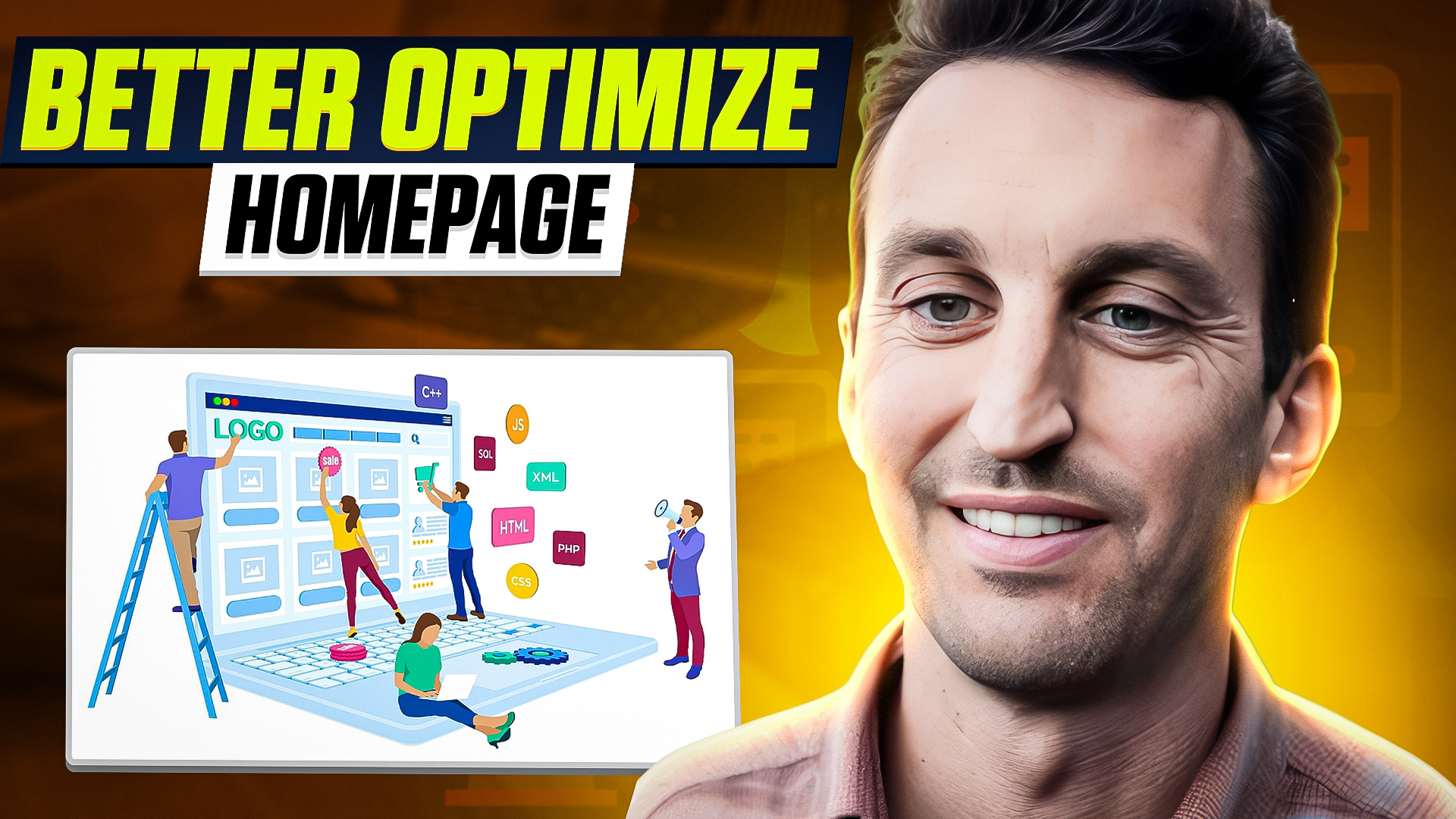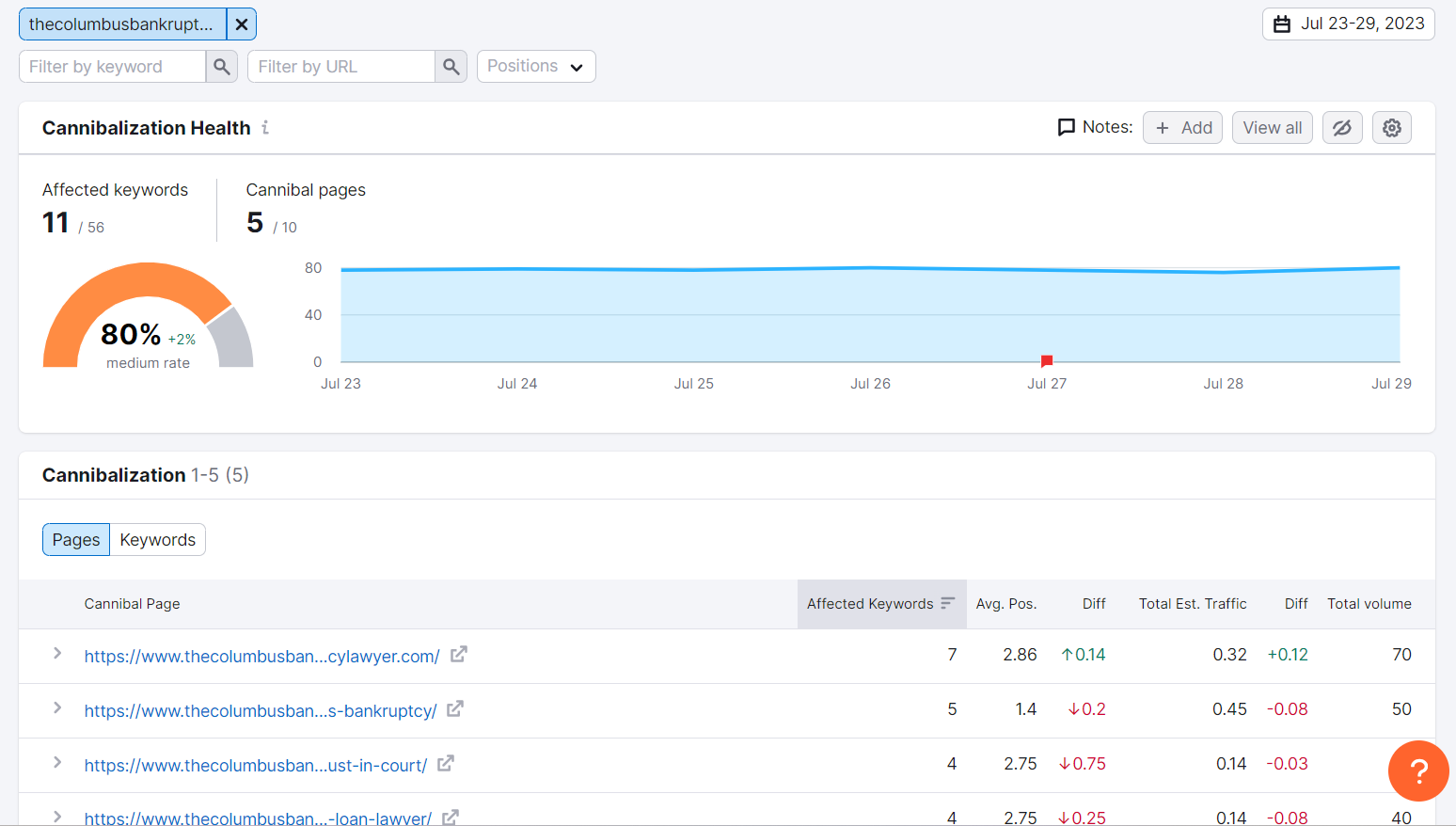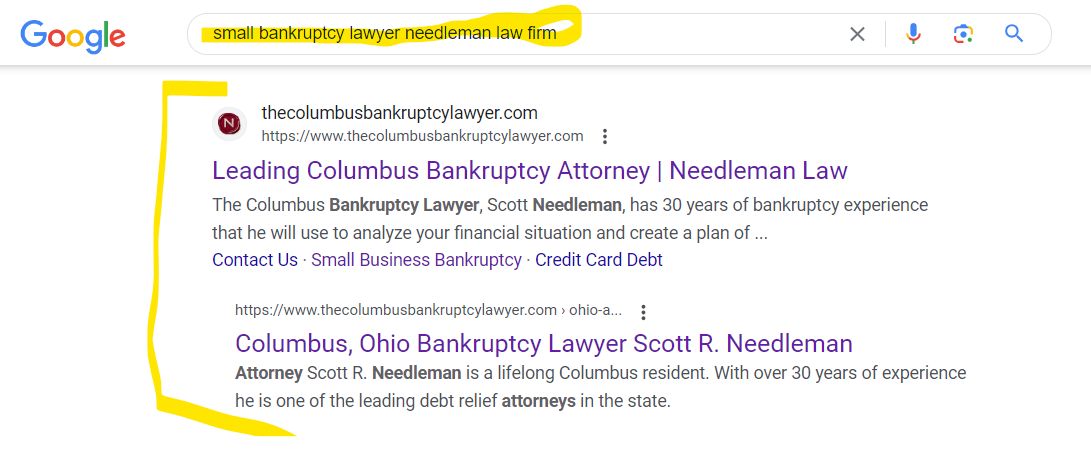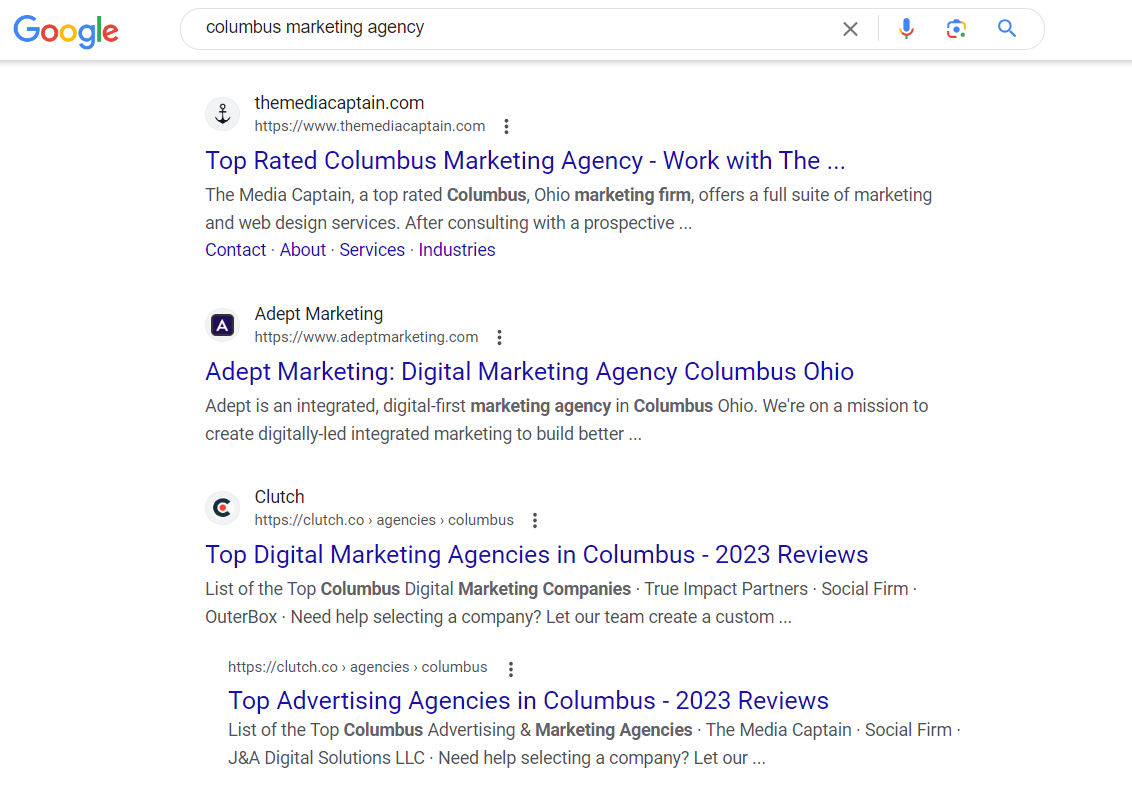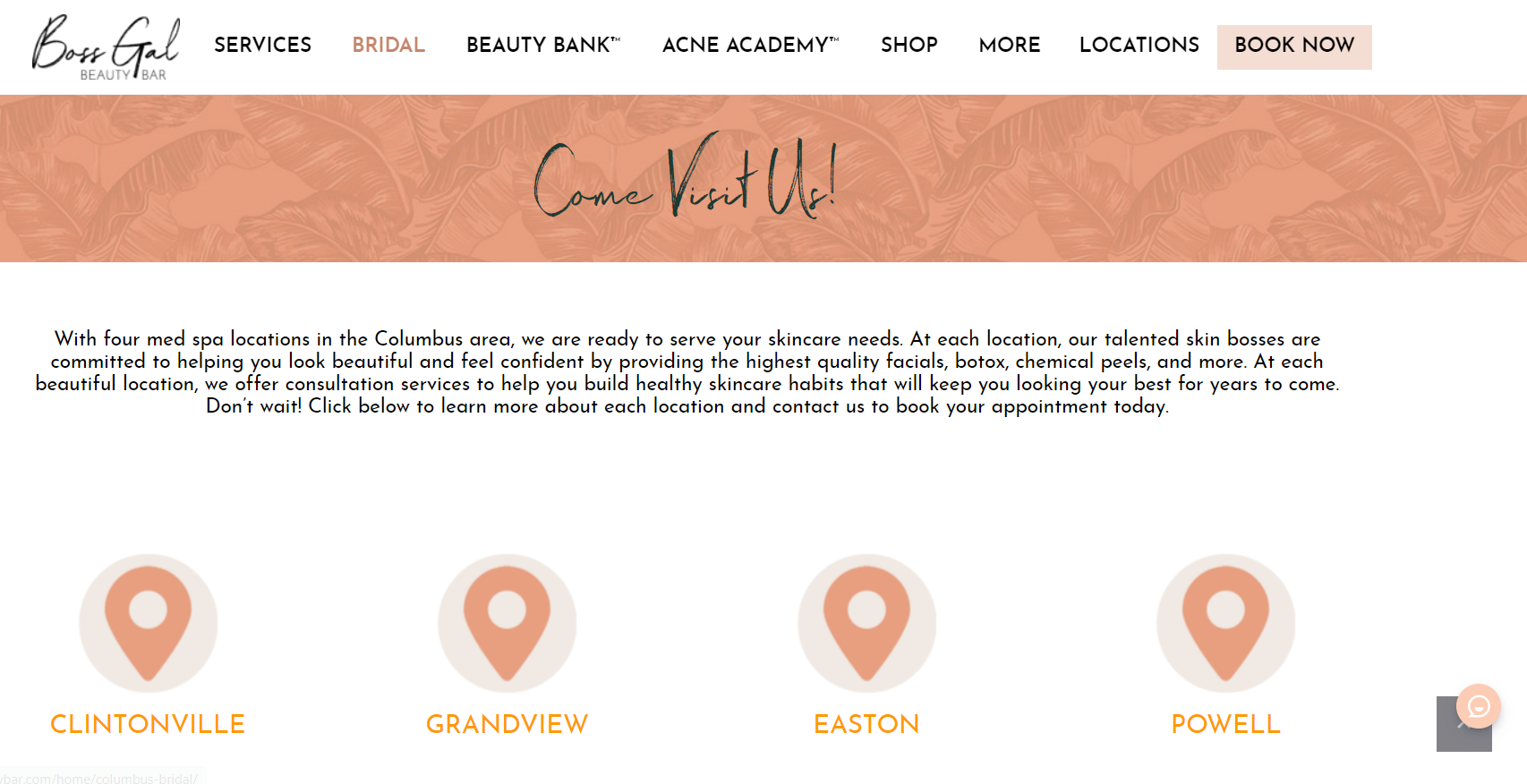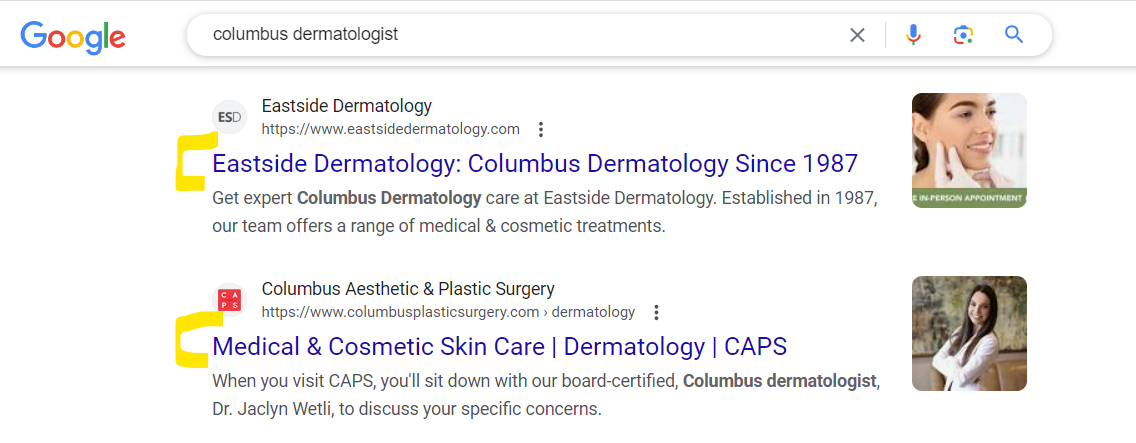Your homepage is one of the most powerful pages on your site for SEO. The homepage often receives the most internal and external backlinks and garners the most traffic, which is why it’s so important.
Since your homepage carries so much weight, you can get this page ranking for some of your most coveted keywords if it’s properly optimized.
When it comes to homepage optimization, many people consider optimizing the title tag, descriptions, headings, internal links, header and footer, etc. While these quick-hit tactics are valuable, most people overlook the critical thinking involved with the homepage, which can be the most crucial component.
Table of Contents
Avoiding Keyword Cannibalization
One of the biggest mistakes I see with homepage optimization is when cannibalizing occurs. Cannibalization is when two pages compete against one another, which dilutes your ranking on Google. You want to avoid keyword cannibalization. Too often, someone has a service page directly competing with their homepage without even realizing cannibalization is happening.
There is a tool within SEMRush that allows you to detect cannibalized pages. Below is an example of a bankruptcy client we’re working with that has numerous cannibalized pages, impacting their keyword ranking. In the example below, the homepage optimized for bankruptcy law competes with their About page, which is overoptimized in the heading and title tag for bankruptcy lawyers.
If you don’t have a paid service like SEMRush, you can do an old-fashioned Google search. When you’re conducting the search, in the end, include your brand name. I conducted the search for “Needleman Law Firm Bankruptcy Lawyer.” You’ll notice Google bundles two pages together in the search result. This is often an indicator that there is cannibalization taking place.
For this new client, we plan on removing the keywords “Columbus, Ohio Bankruptcy Lawyer” reference from the About page since we want the homepage to rank for this.
Differentiation of Broad Professional Terms vs. Specific Services
A broad professional term is an easy way to summarize someone’s profession. There is often a lot of search volume around broad professional terms. It’s essential to differentiate broad professional terms versus service-specific terms when optimizing the homepage. Let me explain.
Examples
- Rayna Girson is a hair stylist focusing on balayage, gray blending, and highlights. Hairstylist is her broad professional term. Because of this, we optimized her website’s homepage for “Columbus Hair Stylist” since there is still a lot of search volume for this broad professional term. The service pages on her website are optimized for balayage, gray blending, and highlights. There is no direct competition between her homepage and service pages since we’ve optimized the homepage for the broad professional term versus the specific service pages.
- Personal injury is a broad professional term for where the homepage should be optimized. The service-specific pages would be optimized for auto accidents, medical malpractice, etc. If a personal injury lawyer had a service-like page on their site for “Personal Injury,” this would be in direct competition with the homepage. We often see blog posts that can pose cannibalization since the content is similar to the homepage or a service-specific page.
Optimizing for Location
For The Media Captain, our marketing agency, our homepage is optimized for “Columbus Marketing Agency.” Since marketing is a competitive industry, I realized how tough it would be to rank on Google for the general term “Marketing Agency” throughout the United States. Since Columbus is a top-15 market (and growing), it was a no-brainer to incorporate localized keywords onto the homepage.
For a search for “Columbus Marketing Agency,” our homepage ranks well for this local query due to the strategic decision to optimize the homepage for localized keywords.
Multiple Locations
When a company has multiple locations, the best course of action may be not to optimize the homepage for any specific keyword. A non-optimized homepage is a perfectly viable solution and in many cases the best SEO option for multi-location businesses.
If a salon existed in Dayton, Cleveland, Cincinnati, and Columbus, you wouldn’t want to optimize the homepage for just one market. The best course of action would be to build out city-level pages, which can be optimized for the coveted keywords you’re targeting.
A client of ours Boss Gal Beauty, they have numerous locations within the Columbus, Ohio market. This was an instance where we could optimize the homepage for “Columbus MedSpa” while still optimizing the suburb-specific location pages for similar keywords. There wasn’t an overlap based on this strategy because of the city versus suburb differentiation.
If you only serve one market with a broad professional term for your business, you can go after the city plus the broad professional term (example: Columbus Dermatologist).
Note: If you have questions about optimizing your homepage based on your business and situation, contact The Media Captain.
On-Page Optimization Tactics for Homepage
Now that we’ve covered the critical thinking elements behind optimizing for the homepage, it’s time to dive into the quick-hit, onsite tactics that can help improve your keyword rankings.
Title Tag
The title tag helps inform Google what the content on your page is about. If you were to put “Columbus, Ohio Dermatologist” in your title tag, it would be a strong ranking indicator for Google. It’s recommended to put your primary keywords within the title tag.
The title tag isn’t visible on your homepage. If you were to conduct a Google search, the title tag is what Google prominently displays as the title. Below, you can see examples of what a title tag looks like. Beneath the title tag is the meta description. This isn’t as much of a ranking factor but it does help entice people to visit your site.
On-Site Content & Headings
Too often, I see a beautifully designed homepage with limited text. According to Yoast, if your content is clearly structured, there’s a better chance of ranking on Google.
Include strong verbiage throughout your homepage incorporating the keyword you’re targeting.
Proper headings also make a big difference. Most people skim content, and so does Google. They put extra weight on your headings, the H1, H2, H3, etc.
On The Media Captain’s site, you’ll see numerous headings above the fold. We include variations of our primary keyword within those headings as we reference marketing agency and marketing firm. A text block also provides the valuable verbiage I referenced earlier. I would recommend a minimum of 300 words dispersed throughout the homepage.
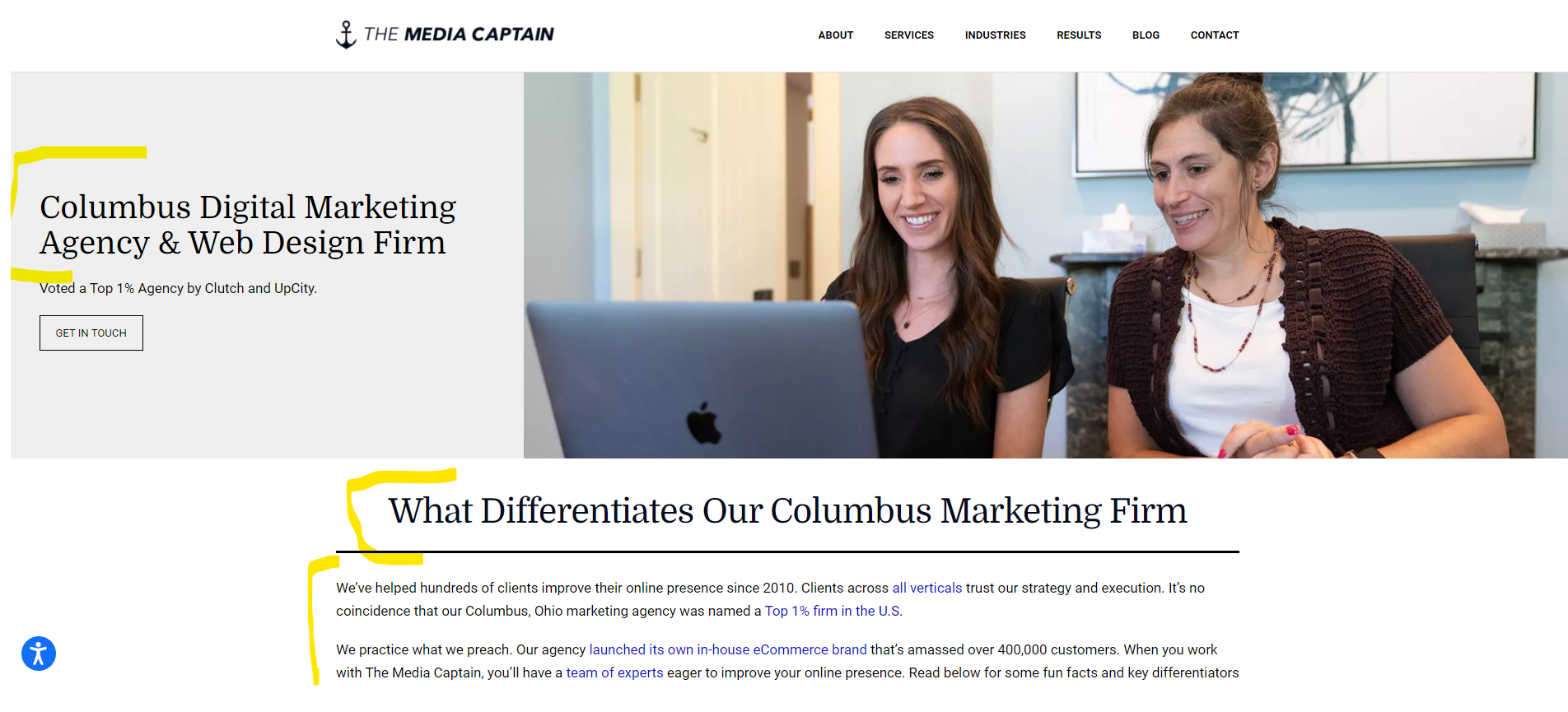 Internal Links
Internal Links
Internal linking is an essential element to SEO. Google wants to see users on your site navigating to numerous pages, not bouncing quickly. Internal linking helps entice people to go to other pages. Since the homepage is the most authoritative page on your site, the internal links carry the most weight. Make sure to link to other relevant pages from your homepage internally.
The header and footer also carry a lot of weight. Google is scanning information from the header and footer on all pages throughout your site. When your primary services or categories are referenced in the header, it helps from an SEO perspective.
Other Tactics
- Optimize images
- Showcase trust indicators, such as awards and accolades so you convey expertise, authority, and trust
- Showcase customer wins
- Too often, companies highlight why they’re great without showcasing success stories and testimonials from the client.
- Great user experience
- You want to provide a fantastic experience for people visiting your homepage. While certain optimization factors can help you rank well on Google, the most important thing is having an excellent on-site experience.


